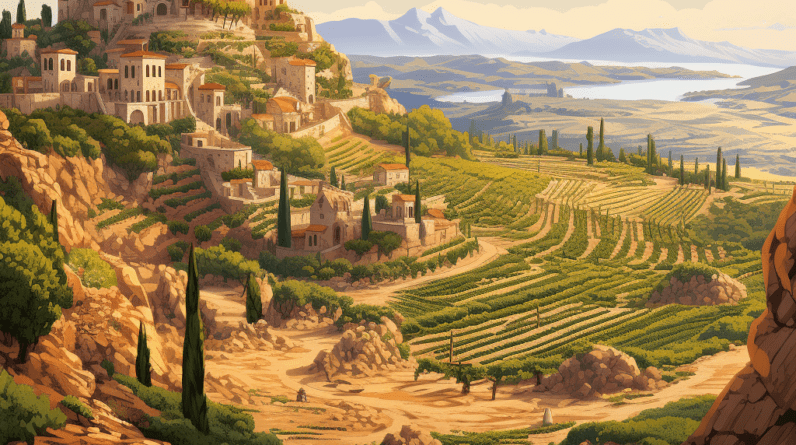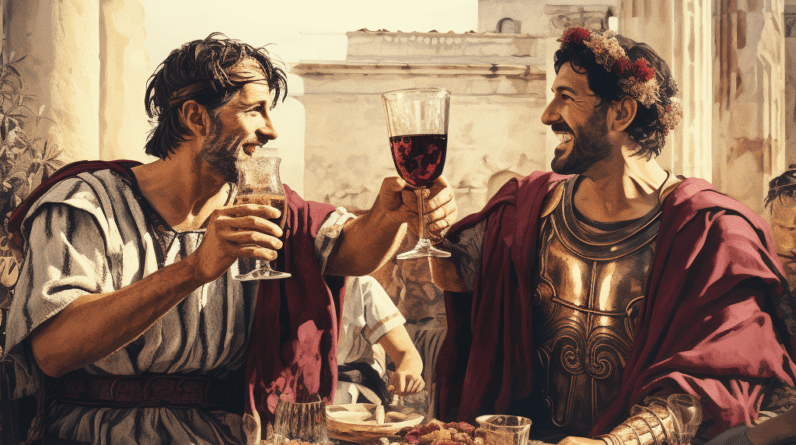
How has the history of wine-making shaped different cultures around the world?
Welcome, fellow wine enthusiasts, to a journey through time and culture, where the history of wine-making intertwines with the very fabric of human existence.
Have you ever paused to ponder the extraordinary influence that this seemingly simple elixir, crafted from fermented grapes, has exerted on our shared heritage, artistry, and society?
Prepare to be enthralled by the captivating story of how wine has left an indelible mark on our world.
In this illuminating article, we will embark on a voyage of discovery, tracing the intricate relationship between wine and human culture.
From the earliest days of grape cultivation in the Mesopotamian Era to its pivotal role in the tumultuous events of the French Revolution, we will uncover how wine has not merely filled goblets but has filled pages of history.
Beyond this, we’ll explore its role as muse to countless artists, a source of inspiration, and a conduit to the divine.
In the heart of society, wine has been a catalyst for celebrations and the backdrop to cherished moments, enhancing our lives in ways that few beverages can.
So, my fellow traveler through the vineyards of history, fasten your seatbelt for an exploration that will leave you with a newfound appreciation for the profound impact of wine and culture on the world we inhabit today.
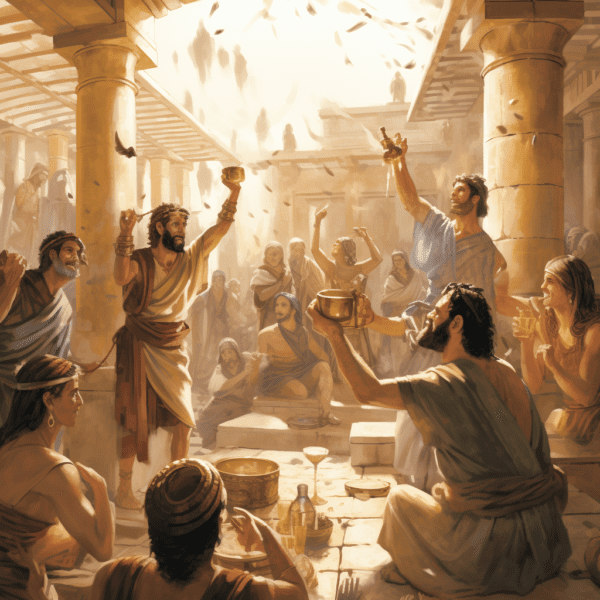
Wine’s Role in Shaping History
The Historical Significance of Wine
Wine has been a companion to humanity for millennia, with its origins dating back to the ancient Mesopotamian Era.
People of that time didn’t just sip wine; they served it to rulers, kings, and queens.
Wine was even offered to the Gods, symbolizing its sacred status.
Wine in Religious Rituals
Throughout various cultures, wine held a special place in religious rituals.
In Christianity, it became a symbol of the blood of Christ during communion.
In Judaism, wine was integral to the Passover Seder, representing the joy and freedom of the Jewish people.
The Roman Empire’s Influence
Wine’s significance extended to the mighty Roman Empire.
It was a daily staple, consumed at every meal, and played a vital role in religious ceremonies.
Bacchus, the Roman god of wine, presided over fertility and the harvest.
However, wine was largely a luxury for the elite during this period.
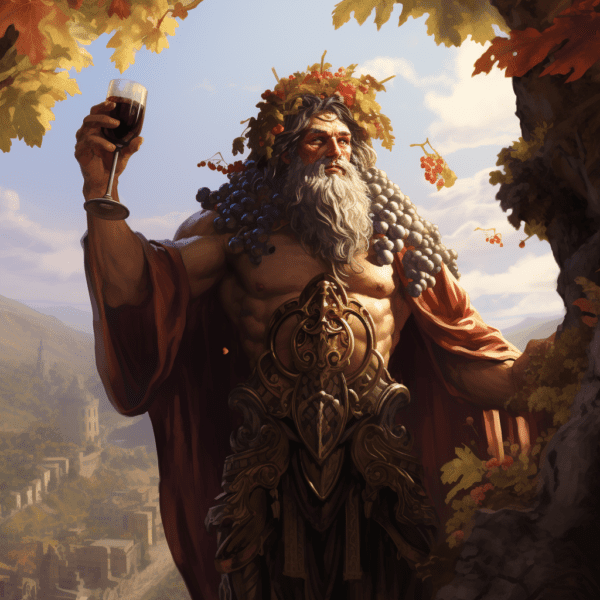
Evolution through the Ages
As time passed, wine continued to evolve.
When the Roman Empire fell, so did the consumption of wine, but it made a resurgence in the Middle Ages.
Clean water was scarce, making wine a matter of life and death for people from all walks of life.
During the Renaissance, the focus shifted from wine’s health benefits to its flavor, and vineyards multiplied to meet the demand.
Wine and the French Revolution
Wine assumed a pivotal role during the turbulent era of the French Revolution.
In the fateful year of 1789, the French government imposed a tax on wine, a decision that ignited a powder keg of discontent, resulting in widespread protests and tumultuous riots.
The tax was met with vehement opposition, primarily because it disproportionately burdened the impoverished segments of society, for whom wine often served as a vital nutritional staple.
The fiery protests, sparked by this perceived injustice, ultimately catalyzed the fall of the monarchy and the ascension of the French Republic.
This poignant historical episode vividly illustrates how wine has, time and again, assumed a central role in the unfolding drama of human history.
Its profound significance reverberates through the annals of various historical events and transformative movements, underlining its indispensable contribution to the evolution of societies across the ages.
Wine’s Influence on Society
Survival and Socialization
In times of scarce clean water, wine was a lifeline.
Its consumption was essential for survival, not just for the wealthy but also for the poor.
Clean water was a luxury, but wine was a necessity.
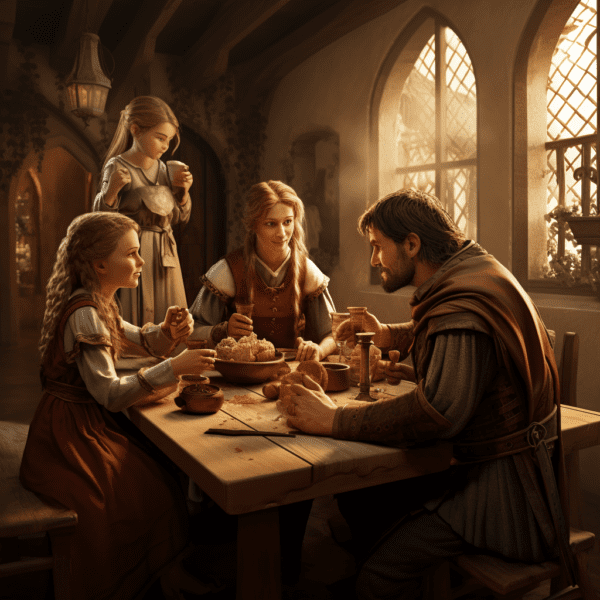
Democratization of Wine
The Renaissance marked a turning point as wine became a drink appreciated for its taste.
Vineyards flourished, making wine accessible to all. People from various backgrounds enjoyed its diverse flavors, and bars and taverns sprung up as popular social venues for wine consumption.
Wine’s Presence in Art
Symbolism in Art
Art and wine have shared a long and intertwined history.
Wine has consistently symbolized taste, class, courtship, and the divine in artistic depictions.
In early art, those of high class were often portrayed enjoying wine.
Religious Paintings
Religious paintings frequently featured wine due to its significance, particularly in Christian iconography.
It symbolized the blood of Christ and played a pivotal role in the Last Supper.
Celebration and Festivity
Wine has also been depicted in paintings as an earthy substance of celebration, often consumed during harvest festivals and various festivities.
If there’s a party in a painting, you can bet that wine is flowing.
Wine’s Enduring Legacy
Over 3,000 Years of Influence
Wine has been a companion to humanity for over 3,000 years, from the moment someone decided to ferment grapes.
Its legacy is profound and enduring.
A Continual Influence
As we move forward, wine’s influence continues to shape events in the world.
It’s a part of our past, present, and undoubtedly our future.
Enjoy Responsibly
As you delve into the world of wine, remember to drink responsibly.
Wine is not just a beverage; it’s a gateway to history, culture, and art.
Savor it, appreciate it, and let it enrich your life.
In conclusion, the history of wine-making has left an indelible mark on different cultures around the world.
Its influence on art, history, and society is undeniable.
As you raise your glass to toast, remember that each sip carries with it the weight of centuries of human experience and creativity.
Cheers to the enduring legacy of wine!
FAQs:
Q1: How old is the practice of making wine?
Wine-making dates back over 3,000 years, with its origins tracing to the ancient Mesopotamian Era.
It has been an integral part of human history for millennia.
Q2: What role did wine play in ancient religious rituals?
Wine held a sacred status in many ancient cultures.
In Christianity, it symbolizes the blood of Christ during communion, while in Judaism, it is used during the Passover Seder to represent joy and freedom.
Q3: Did wine have any influence on historical events?
Yes, wine has played a significant role in shaping history.
For example, the French Revolution saw widespread protests triggered by a tax on wine, eventually leading to the fall of the monarchy.
Q4: When did wine become accessible to a broader population?
During the Renaissance, wine shifted from being primarily consumed for its health benefits to being appreciated for its flavor.
This era marked the democratization of wine, making it accessible to people from various backgrounds.
Q5: How has wine been portrayed in art throughout history?
Wine has consistently symbolized taste, class, courtship, and the divine in artistic depictions.
It is frequently featured in religious paintings, particularly in Christian iconography, and often appears in scenes of celebration and festivity.
Q6: Is wine consumption still relevant in modern society?
Absolutely! Wine continues to be a part of our lives, both socially and culturally.
It’s not just a beverage; it’s a reflection of our history and an ongoing influence on our world.
Q7: What is the significance of wine in today’s world?
Wine remains a symbol of culture and celebration.
It brings people together, enriches culinary experiences, and continues to be a subject of fascination for artists and historians.
Q8: Any tips for responsible wine consumption?
Enjoy wine responsibly by savoring its flavors and respecting its cultural significance.
Drink in moderation and be mindful of your limits to fully appreciate its impact on art, history, and society.



